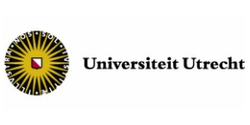PhD position on Hydrogen Storage in Porous Geological Formations
Updated: 24 Mar 2025
The department of Earth Sciences is looking for a highly motivated candidate for a PhD position at its Experimental Rock Deformation Group and Tectonics Group.
Your job
Green hydrogen will play a key role in our future energy supply, necessitating large-scale underground hydrogen storage in porous geological formations. Depleted offshore and neighbouring onshore gas fields are considered promising candidates for hydrogen storage in the Netherlands.
While considerable experience has been gained in geological carbon storage, large-scale hydrogen storage presents unique challenges. Hydrogen’s properties, such as low density, low viscosity, and high diffusion coefficient, make it highly mobile and prone to escaping from geological structures. Additionally, the cyclic nature of hydrogen injection and extraction complicates the flow process, influencing geomechanical behaviour and geochemical reactions. The interaction between these different physical processes impacts the caprock integrity, fault leakage, and fluid-rock interactions. The success of large-scale hydrogen storage in porous geological formations depends on both identifying suitable geological sites and strategically managing hydrogen injection-extraction cycles. This PhD project will focus on identifying optimal hydrogen storage sites in the Netherlands, and developing effective operational strategies for storage in porous geological formations.
Within this PhD project, you will interpret subsurface geological structures, identify potential reservoirs, and assess caprock integrity to determine their suitability for hydrogen storage. You will also develop numerical models to simulate hydrogen flow dynamics within the reservoirs, and examine their impact on hydrogen containment, reactive transport, and geomechanical behaviour. You will contribute to the development of best practices for the exploration and operation of large-scale hydrogen storage in porous geological formations. Throughout the project, you will collaborate with the two vibrant research groups, offering diverse expertise in resource exploration, geological modelling, high pressure and temperature experimentation, and coupled multiphysics modelling.
A personalised training programme will be set up, reflecting your training needs and career objectives. About 20% of your time will be dedicated to this training component, which includes following courses/workshops as well as training on the job in assisting in the Bachelor’s and Master’s programmes of the department at Utrecht University.
Requirements:
You have completed your MSc degree in Geomechanics, Geophysics, Hydrogeology, Geological engineering, Reservoir Engineering, or a related discipline by the time the position starts. Preferably, you also have:
- experience or strong interest in reservoir and/or geomechanical modelling using continuum-based numerical methods (e.g., finite element method, finite difference method);
- experience or strong interest in using reflection seismics for subsurface exploration;
- strong quantitative and programming skills;
- the ability to work independently and as part of a team in a multidisciplinary research environment;
- enthusiasm for geo-energy and applications relevant to the sustainable use of the subsurface;
- excellent communication and interpersonal skills.
Due to the international character of our research, good command of spoken and written English is essential. We highly encourage applicants from all members of our community and of diverse backgrounds to join us.
Salary Benefits:
We offer:
- a position for one year, with an extension to a total of four years upon a successful assessment in the first year, and with the specific intent that it results in a doctorate within this period;
- a working week of 38 hours and a gross monthly salary between €2,901 and €3,707 in the case of full-time employment (salary scale P under the Collective Labour Agreement for Dutch Universities (CAO NU));
- 8% holiday pay and 8.3% year-end bonus;
- a pension scheme, partially paid parental leave and flexible terms of employment based on the CAO NU.
In addition to the terms of employment laid down in the CAO NU, Utrecht University has a number of schemes and facilities of its own for employees. This includes schemes facilitating professional development, leave schemes and schemes for sports and cultural activities, as well as discounts on software and other IT products. We also offer access to additional employee benefits through our Terms of Employment Options Model. In this way, we encourage our employees to continue to invest in their growth. For more information, please visit Working at Utrecht University.
36 - 40 hours per week
Princetonlaan 8a

